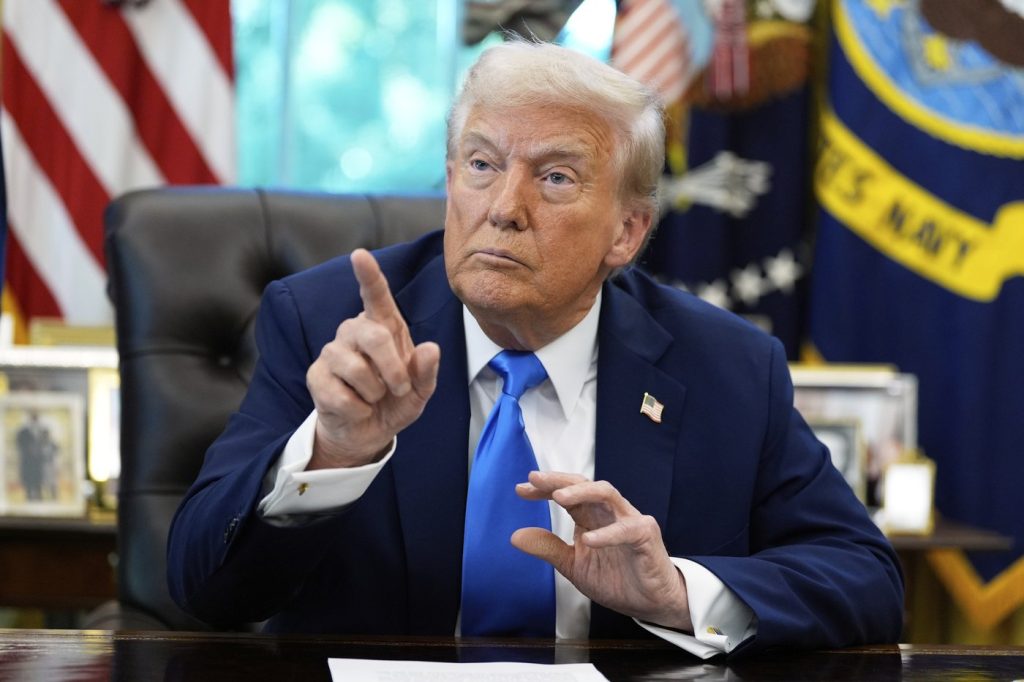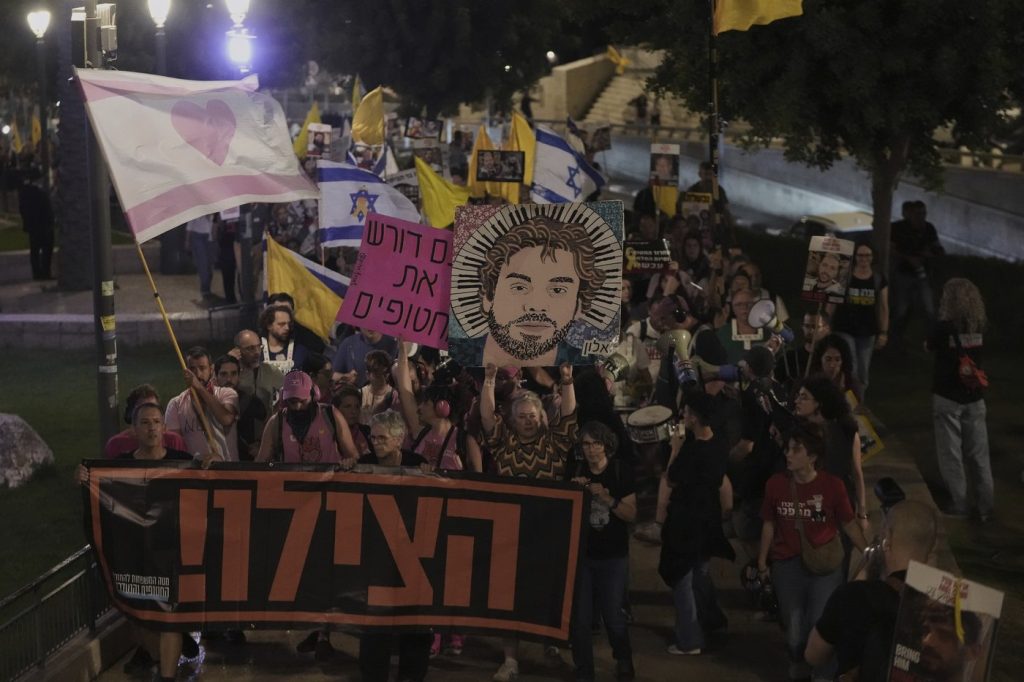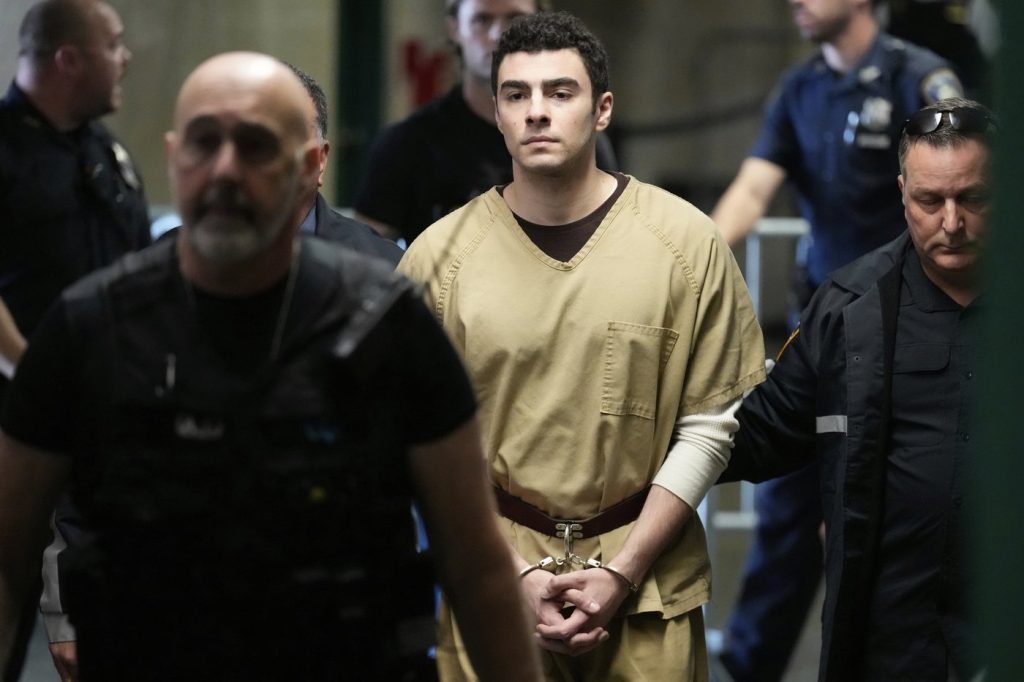WASHINGTON (AP) – A month following an Alaskan summit with Russian President Vladimir Putin, President Donald Trump has expressed surprise over the lack of progress in achieving peace in Ukraine. “He’s let me down,” Trump remarked this week, highlighting growing frustrations regarding international conflicts.
In the Middle East, where Israeli Prime Minister Benjamin Netanyahu is launching a new offensive in Gaza City, tensions are escalating. Trump remarked, “They have to be very, very careful,” following Israel's targeted actions against Hamas within Qatar, a U.S. ally involved in diplomatic negotiations.
While Trump attempts to project confidence and dominance on the global stage, his diplomatic endeavors appear to be faltering. As he campaigns for the Nobel Peace Prize, the reality remains that prominent conflicts such as those in Ukraine and Gaza are intensifying rather than diminishing. Max Bergmann, a former State Department official during President Barack Obama's tenure, noted, “This whole last nine months of peace efforts was just a merry-go-round.”
Trump is known for his bold gestures, such as military strikes and tariff announcements, but as Bergmann notes, achieving peace deals is a considerably more challenging task. He emphasized that without experienced diplomats and foreign policy experts surrounding him, Trump’s approach often falls short, akin to an unqualified individual attempting to broker real estate deals.
Despite the setbacks, the White House has pointed to endorsements from foreign leaders hailing Trump’s peace efforts. Trump frequently asserts that he hires “only the best people,” indicating confidence in his strategies. Matt Kroenig, a former senior policy adviser at the Pentagon during Trump’s first term, stated that while Trump’s assertiveness sometimes yields results, it can also lead to stalling on more complex issues, exemplified by his unsuccessful attempts to persuade North Korean leader Kim Jong Un to abandon his nuclear program.
When confronted with arduous challenges such as the conflicts in Ukraine and Gaza, questions arise regarding when Trump might concede and pivot his focus elsewhere. Typically, foreign policy requires coordinated efforts across various governmental agencies through the National Security Council; however, Trump has significantly reduced the council's staff, leaving the strategic direction largely in the hands of a few individuals, including Marco Rubio, who serves dual roles as Secretary of State and National Security Advisor.
The Middle East situation is increasingly volatile, with Trump positioning himself amid escalating tensions. His recent visits to Arab nations, including Qatar, aimed at strengthening ties, contrast with the realities of Israel's military actions and rising hostilities in the region. Following Israeli attacks, Arab leaders expressed growing concerns about the United States' ability to effectively manage relationships between Israel and its adversaries, questioning Trump’s influence over Netanyahu’s decisions.
This marks a significant shift from previous relations when Israel and Arab nations grew closer during Trump’s first term, particularly following the Abraham Accords. U.S. officials are attempting to alleviate these concerns by highlighting Trump’s disapproving comments regarding Netanyahu, ongoing meetings with Qatar's prime minister, and discussions around enhancing security arrangements in the region.
As the United Nations General Assembly convenes, Arab nations are likely poised to voice their dissatisfaction, advocating for a reevaluation of U.S. engagement in the Middle East. The current strategy of maintaining Israel's military superiority over its Arab neighbors faces scrutiny, particularly after incidents where U.S.-supplied weapons were employed against Qatar without adequate defense responses.
In Europe, Trump’s ambiguous stance towards Putin has drawn criticism, especially as he sometimes implies that Ukrainian President Volodymyr Zelenskyy shares culpability for the ongoing conflict initiated by Russia’s invasion in 2022. Trump claimed that his meeting with Putin “accomplished a lot,” yet acknowledged the complex dynamics between Zelenskyy and Putin, stating, “It takes two to tango.”
Concerns about the potential spillover of the Ukraine conflict into NATO territories have intensified, particularly following recent Russian incursions into the airspace of Poland and Estonia. Trump remarked that these developments could signal “big trouble.” During a news conference in the U.K., he reiterated his commitment to resolving the conflicts in Gaza and Ukraine but noted the unpredictable nature of warfare, reflecting the challenges ahead.












